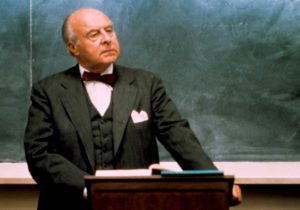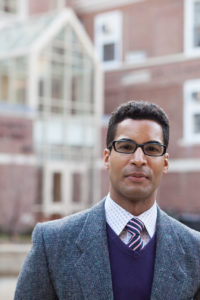The Snowflakes Take Charge at UT Law School: Political Correctness Trumps Pedagogy in Constitutional Law I

The first year of law school has traditionally served as a sort of boot camp designed to “toughen up” undisciplined students through a demanding regimen of instruction using the Socratic method. At least that was the model when I attended the University of Texas School of Law four decades ago. By forcing students to break down and question every assumption, and by insisting that students use logical arguments—instead of emotions—to prove their points, law professors taught their classes how to “think like a lawyer.”
Part of the first-year pedagogy involved learning how to argue either side of an issue—marshaling the facts and law to reach opposite conclusions. Not only does this instill a deeper understanding of the relevant subject matter, it also teaches a skill essential to being an effective lawyer. Practicing lawyers don’t know in advance what side of an issue their client will be on, and being able to anticipate the other side’s argument makes one a more effective advocate or counselor. Moot court competitors—like forensic debaters—have to be able to present either side of the case with equal alacrity.
Law school exams often involve hypothetical questions based on judicial decisions or legal doctrines the students have discussed in class, without there being a “correct” answer; the scoring is based on the student’s ability to display an understanding of the applicable principles, identify relevant issues, and fashion a compelling argument. In the classroom, and during final exams, students can’t demur to a topic on the grounds that it makes them uncomfortable. Imagine the fictional Professor Charles Kingsfield’s reaction if one of his students in The Paper Chase had expected such an accommodation! “Go home to your mother,” he would have bellowed. “Come back when you are ready to act like a lawyer.”
Unfortunately, in the intervening decades since I attended UT law school, affirmative action, political correctness, and left-wing politicization of the legal academy have taken their toll, even at my alma mater. Snowflake college students become snowflake law students, and gutless administrators—terrified of any controversy, especially involving race—cower to avoid offending certain groups of students. As a result, first-year classes are no longer a “boot camp,” but a continuation of the undergraduate day spa to which many coddled millennials have become accustomed.

Case in point: At UT law school, Professor Richard Alpert gave his 1L Constitutional Law I students a final exam consisting of half multiple-choice questions and half an essay responding to a prompt. The prompt asked students to assume they were advising the Governor of Kansas regarding the legality of segregated schools, prior to Brown v. Board of Education in 1954. Students were asked to write a memo, no more than 1,000 words, raising the best legal arguments in favor of segregated schools. Given the sensitivity of matters relating to race, it is unlikely that a white professor would have used such a prompt for an essay exam. Professor Alpert, however, is African-American.
After the exam was over, leftist students began to whine. One student, a white SJW, wrote an email to the class objecting that the question left him “shocked and disgusted.” The student encouraged his classmates to complain to the law school’s administration, asserting that “No one should have been forced to write an essay defending segregation.” Another white student defended Professor Alpert’s essay question as a legitimate pedagogical exercise.
A student of color admonished her classmates, asking that they “remember the amount of privilege that each of us sit in as we work towards solutions to mitigate or, possibly, remedy these concerns.” Continuing, this student scolded the initial objector with these words: “If you are not a person of color and you felt triggered by the exam question, I would encourage you to actually talk to a person of color in the class because, to be frank, the question did not address your experience. And because it is not your experience, it is not you [sic] place to take charge of the dialogue without consulting the individuals who are actually impacted.” Nevertheless, the student of color indicated that the Thurgood Marshall Legal Society, a student organization at UT affiliated with the National Black Law Students Association, “has been made aware of this exam question.”
The UT administration quickly assumed the fetal position. Within days, Professor Alpert sent an apology to the class, reproduced in full below:
|
In other words, students are given the option, after the exam was administered, to use only the multiple-choice questions (weighted double) instead of the essay question. In a Constitutional Law class, hypothetical questions based on Brown v. Board of Education are off-limits, at least if the prompt asks students to raise arguments challenging the holding of Brown. To be followed by a group discussion with UT’s undergraduate diversity czar.

This represents capitulation to snowflakes. Safe spaces are an innovation at elite law schools, and I am chagrined that my alma mater is leading the way.
Addendum: Thank you, Instapundit!
And also the mention in Above the Law. With the sequel here.
Also the mention in the Western Journal (published by the Daily Caller News Foundation).
































